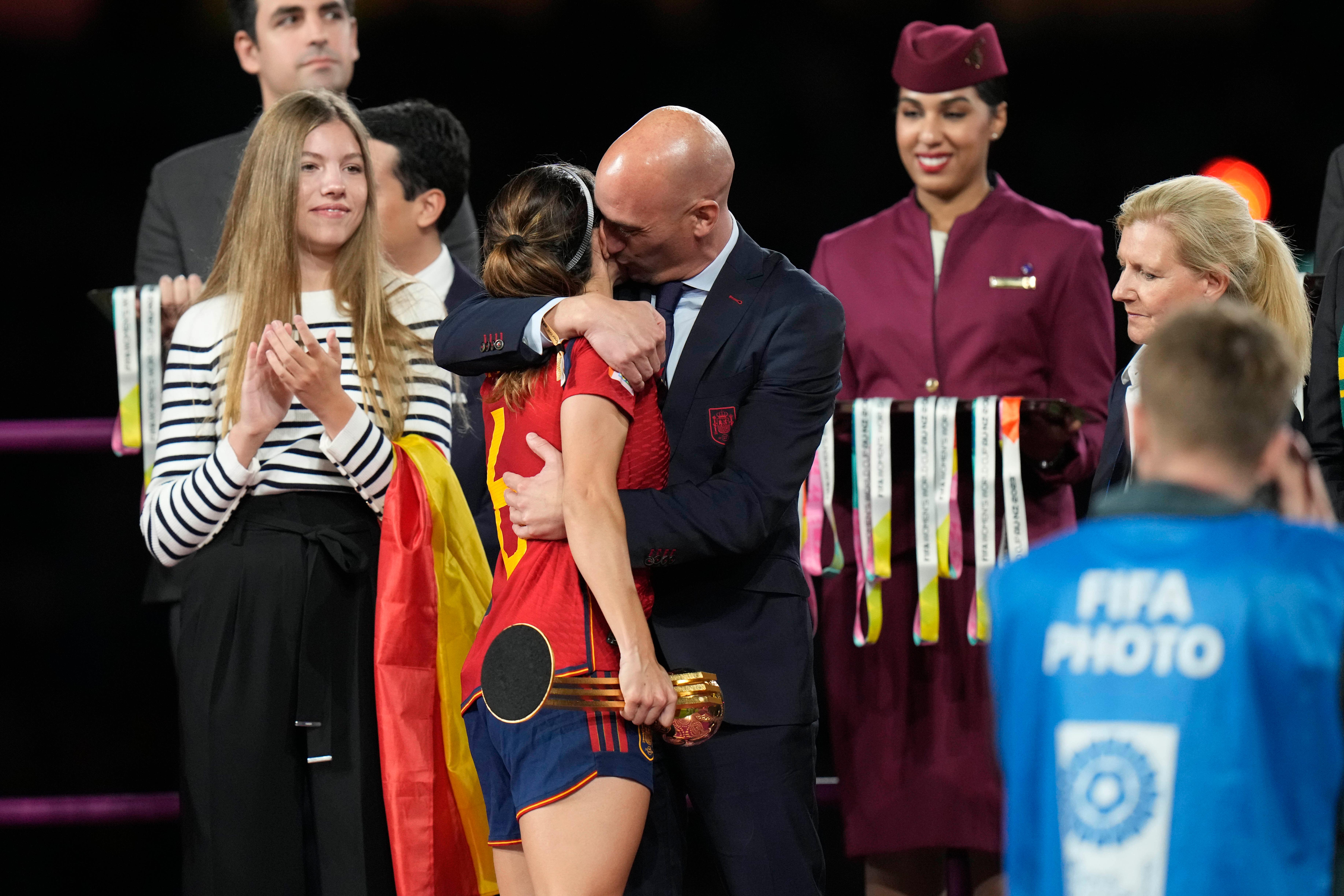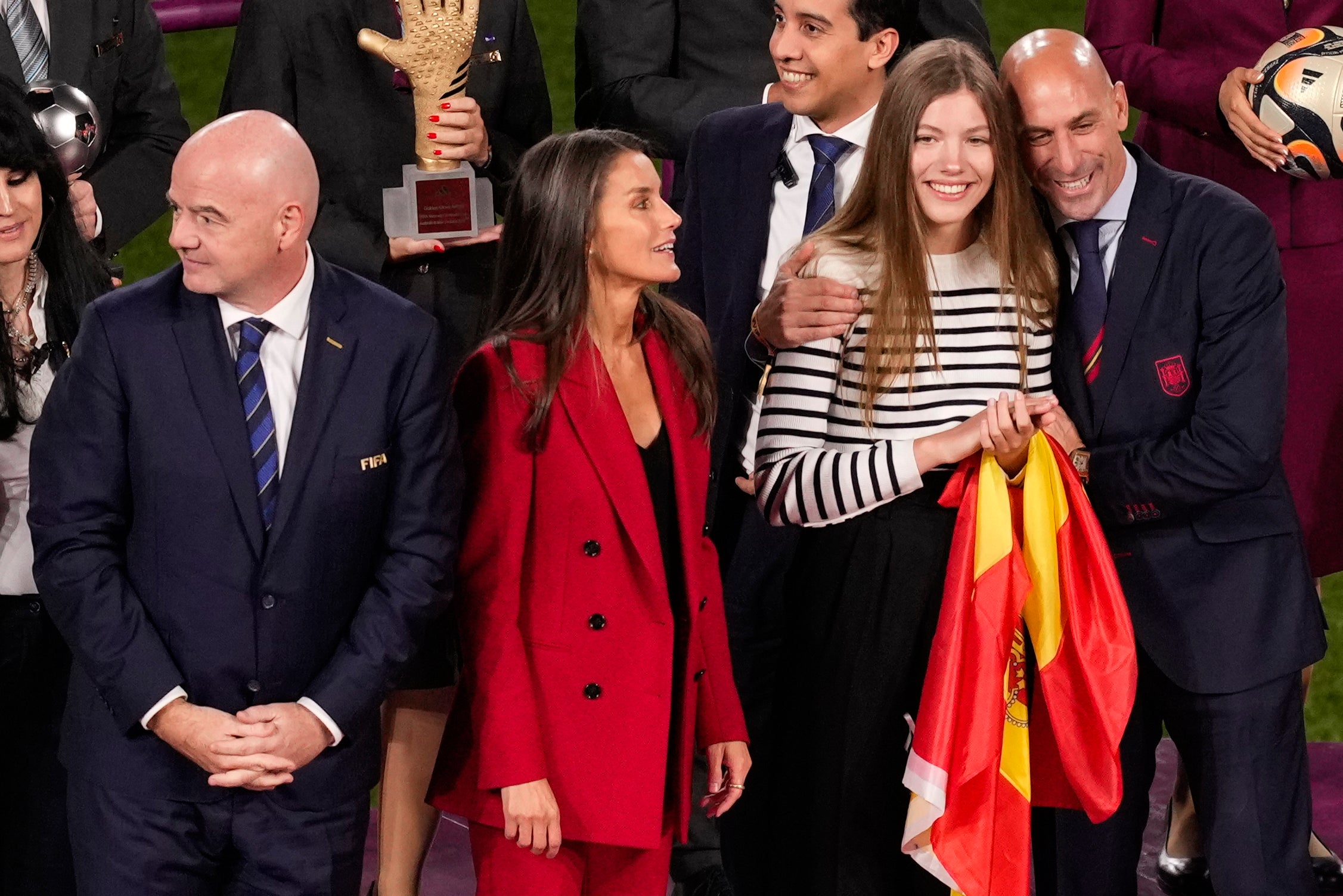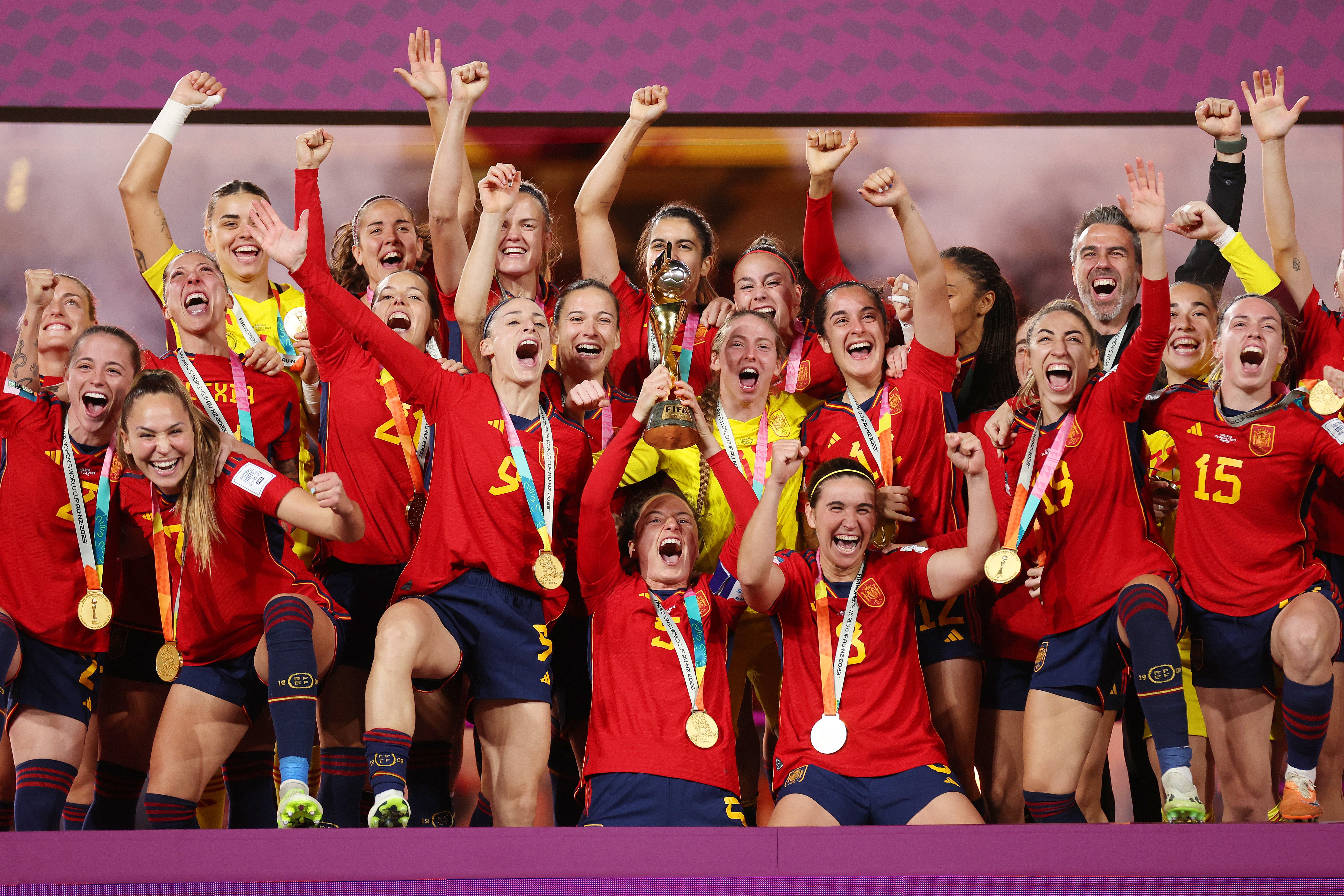Spanish football president’s kiss was an abuse of power that never should have happened
Luis Rubiales’ non-apology is frustrating and does not make up for the unwanted kiss

Your support helps us to tell the story
From reproductive rights to climate change to Big Tech, The Independent is on the ground when the story is developing. Whether it's investigating the financials of Elon Musk's pro-Trump PAC or producing our latest documentary, 'The A Word', which shines a light on the American women fighting for reproductive rights, we know how important it is to parse out the facts from the messaging.
At such a critical moment in US history, we need reporters on the ground. Your donation allows us to keep sending journalists to speak to both sides of the story.
The Independent is trusted by Americans across the entire political spectrum. And unlike many other quality news outlets, we choose not to lock Americans out of our reporting and analysis with paywalls. We believe quality journalism should be available to everyone, paid for by those who can afford it.
Your support makes all the difference.It should have been a moment of glory, one for the history books, Spain lifting the golden trophy aloft after winning the biggest match in women’s sport. But instead the aftermath of the biggest Women’s World Cup is swirling with debate raging over a kiss, when it should be a triumph for the sport.
The excuse of “boys will be boys” has seemingly been replaced by “minor show of affection”, as actions which could be considered sexual assault are swept under a carpet. In the post ‘me too’ era you would hope it would not be so easy to diminish such incidents, but that is exactly what the Spanish FA has done.
At the root of it all it is an abuse of power. Spanish FA president Luis Rubiales used his position of authority to kiss Jenni Hermoso on the lips on the presentation stage, while others were hugged or kissed on the cheek.
Rubiales told Radio Marca: “The kiss with Jenni? There are idiots everywhere,” he said. “When two people have a minor show of affection, we can’t listen to idiocies. We are champions and that is what stays with me.”
Ultimately what should matter most was when Hermoso initially said: “Eh…yeah, I did not enjoy that,” although later via quotes put out by the Spanish FA she described the act as “mutual and spontaneous”.
It was uncomfortable to watch, and all too familiar for far too many women who have had their heads grabbed and kissed without permission, whether in a club, or even by a partner. Should those encounters too be dismissed as a “minor show of affection” and liken the act to a compliment? I would be surprised if any woman who had her head grabbed and kissed would consider the act “mutual”.

Spain’s Equality Minister Irene Montero criticised Rubiales, saying: “We shouldn’t assume that kissing someone without their consent is something that just happens. It’s a form of sexual violence women suffer regularly, and invisibly, that we cannot normalise.”
To look at it another way, outside of the context, it is perhaps easier to understand why the act, which lasted less than a second, was so problematic. Taken simply it was a 45-year-old man, the head of a governing body, kissing someone – and it is hard to imagine Hermoso could have avoided it if she wanted to – and someone 15 years younger and employed by his organisation.
Rubiales issued an apology in a video address the next day, saying: “There is something I regret, and it was what happened between me and a player, with whom I have a fantastic relationship, just like with the others, where I have certainly made a mistake. I have to admit it,” Rubiales said in his video address.

“In that moment of absolute exultation, without any bad intentions or bad faith, well… that happened. I believe it happened in a very spontaneous way, which I repeat had no bad intentions from either side.
“From that point on, it wasn’t interpreted that way as we carried on as normal, naturally, and again with no ill will between us. But outside of that it seems like it has caused a commotion as it seemed to do damage, so I want to apologise for it, I don’t ask for anything else.”
Montero’s criticism of normalising an act is however the most important. People, and especially young people copy what they see, and it is not beyond belief that others will look at Rubiales’ action and feel they too can act similarly. It is also hard to imagine that if it were a “minor show of affection” it would be common if the men had won something too.
In another universe, if it was England holding the trophy aloft, it would be inconceivable that Prince William, the head of the Football Association, would have done anything remotely similar.

For a sport that has so often had to speak out against sexual abuse, by managers and coaches – a 2022 report concluded emotional and sexual misconduct had become ‘systemic’ in the top US women’s league – a stand has to be taken on the highest stage for real change to happen. Although Rubiales apologised, he did so without taking ownership for his own actions, saying merely “that happened” and regretting the “commotion” caused as reasons for his public address.
It was a frustrating statement, with excuses again listed before an apology not for the act itself but only because it “did damage”.
If there were any winners from this situation, you would hope it would be the Spanish squad. Last year 15 players sent an email resigning from the team over the oppressive regime under manager Jorge Vilda, supported by Alexia Putellas among others. Some of the players returned but it was a powerful stand, and one that women in football should not be afraid to take to be heard.


